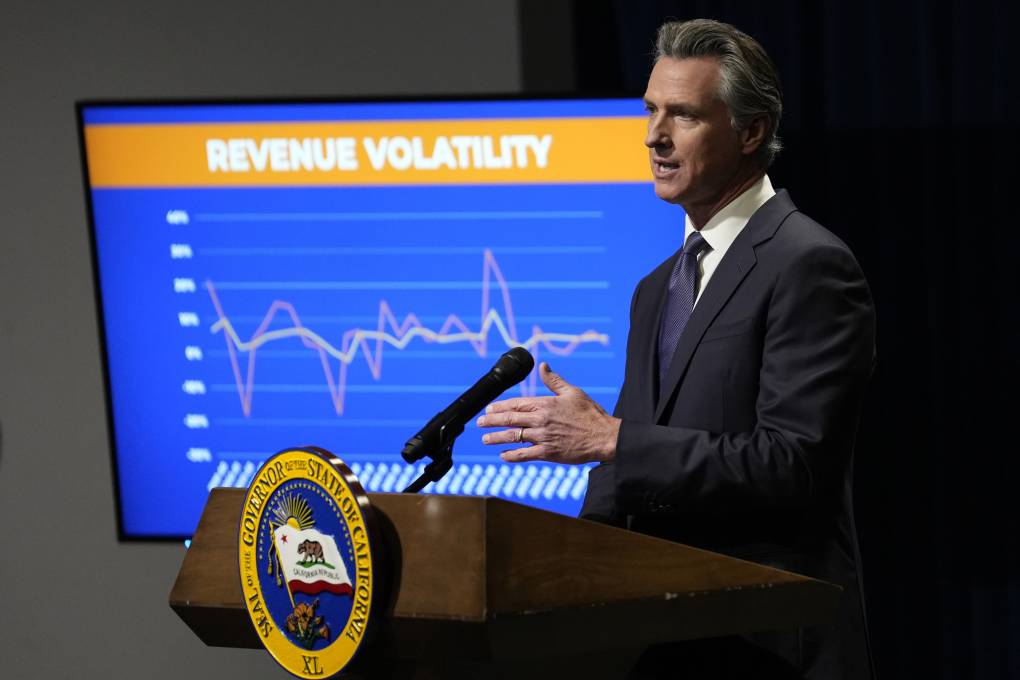Newsom states that there is a $27 billion budget deficit in the state, but he believes it can be addressed without the need to increase taxes

California’s state budget faces a $27.6 billion deficit, which Governor Gavin Newsom believes can be managed without imposing new taxes or significantly cutting essential programs. His revised $288 billion May budget proposal for 2024-25 includes measures such as using funds from reserves, delaying certain programs, leaving 10,000 state jobs vacant, and reducing spending on various programs like water storage, middle-class scholarships, and housing assistance for low-income individuals.
Newsom emphasized the need for responsibility, accountability, and a balanced budget. Initially, in January, the deficit was estimated at $38 billion, which was later revised to $44.9 billion. By March, a deal between the governor and state lawmakers had reduced the deficit to $27.6 billion.
The Legislature must pass a budget by June 15, or lawmakers risk not being paid. Subsequently, Newsom has until July 1 to reach a final spending agreement with the Legislature. While Republicans, the minority in both the Assembly and Senate, criticized the proposal, advocating for more spending cuts.
Assemblyman Vince Fong, R-Bakersfield, the vice chairman of the Assembly Budget Committee, expressed concerns about California’s budget situation, calling it messy. He criticized the use of budget reserves to sustain unsustainable spending, highlighting the need for responsible fiscal management.
California’s budget went from a surplus three years ago to deficits in the past two years. The fluctuation was due to changes in capital gains taxes, which surged in 2021 but dropped in 2022, impacting the state’s revenue from wealthy Californians. Additionally, the state faced challenges in predicting tax revenue accurately after the IRS allowed Californians to delay tax payments from April to November due to historic storms.
Governor Newsom and state lawmakers received emergency funding from the federal government during the COVID pandemic, but these funds have been depleted. Newsom suggested shifting to a two-year budgeting cycle to address these challenges.
To address the current deficit, Newsom proposed a combination of cuts, pauses, shifts, revenue increases, and efficiencies. These include cutting spending on various programs, delaying certain expenditures, and shifting some costs to other funding sources. Notably, Newsom avoided cuts to key programs established in recent years, such as pre-kindergarten for 4-year-olds and Medi-Cal expansion.
Newsom also proposed cuts to state housing programs but emphasized that the core mission of providing affordable housing remains unchanged. Educators are concerned about potential cuts to Proposition 98 funding for K-12 schools and community colleges.
Newsom emphasized that despite the challenges, California’s economy remains strong, ranking as the fifth-largest in the world. He rejected calls to increase taxes on corporations or the wealthy, emphasizing California’s continued leadership in various fields.

